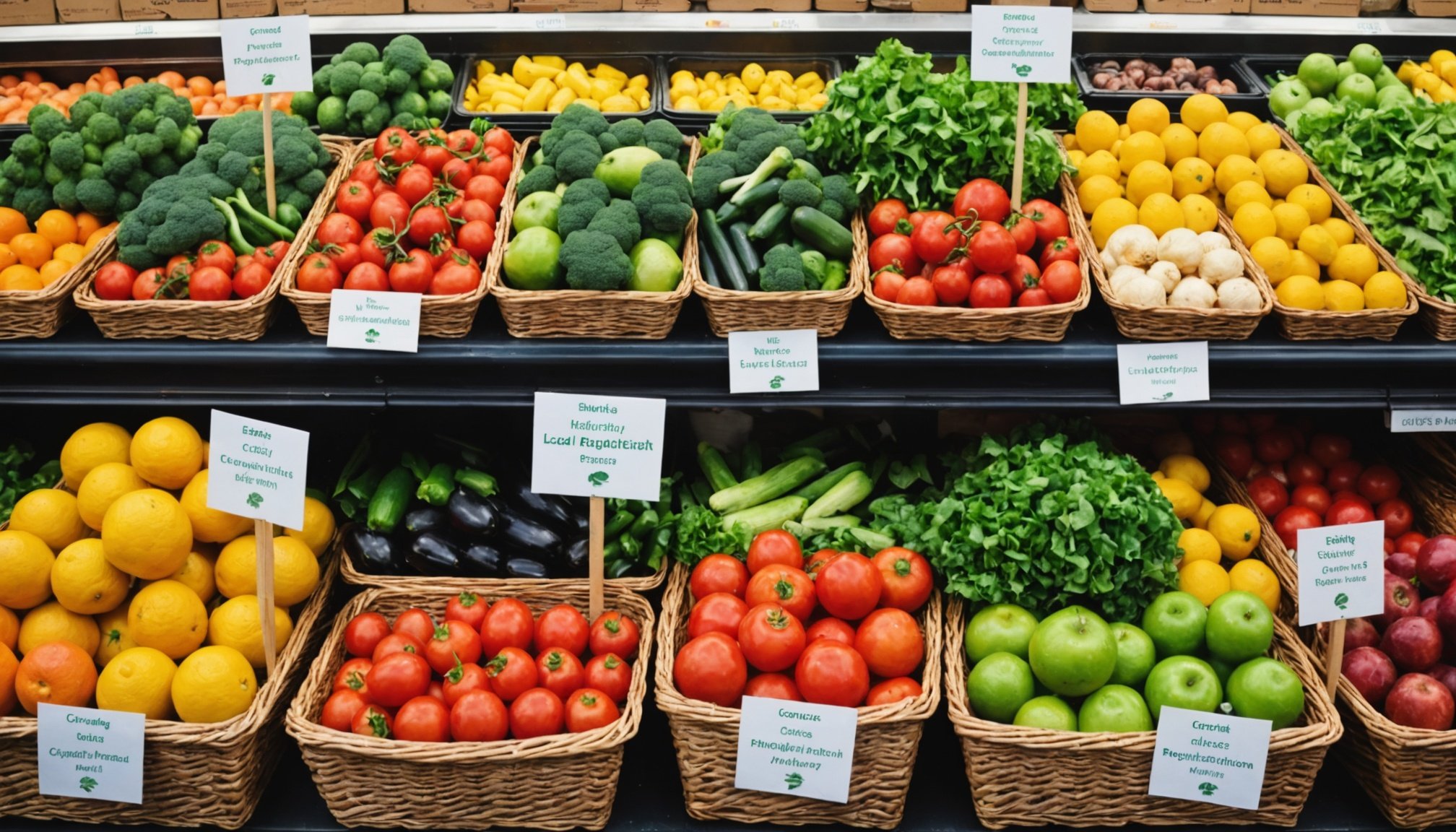Understanding Local Health Regulations
Navigating local health regulations is crucial for any organic food marketplace in the UK. Compliance ensures not only legal operation but also builds consumer trust and contributes to business sustainability. These regulations encompass hygiene practices, food safety standards, and organic certification requirements, all of which serve to protect the consumer and uphold the integrity of organic labels.
Key regulatory bodies play pivotal roles in oversight. The Department for Environment, Food and Rural Affairs (DEFRA) leads in setting standards and policies, while local councils enforce food safety regulations. The Soil Association and Organic Farmers & Growers are among the certifying bodies providing organic certification. Compliance with these entities assures consumers that products meet stringent organic standards.
Also to read : Your essential handbook to uk waste management compliance: a navigational guide for recycling startups
For businesses, understanding these bodies’ roles and the regulations they enforce is essential. It minimises potential legal repercussions and mitigates risks associated with operations. Meeting these requirements can be complex, but it’s vital for maintaining the marketplace’s reputation. Proactively engaging with these regulatory bodies and adhering to guidelines not only enhances trust but also secures a competitive edge in the flourishing organic market.
Step-by-Step Guide to Setting Up an Organic Food Marketplace
Setting up an organic food business involves a detailed approach to ensure success in this thriving sector. Initially, conducting market research is crucial. Understanding target demographics can define the type of products to offer, tailored to consumer needs.
In the same genre : Mastering maritime compliance: key approaches for shipbuilding firms to meet uk and international maritime regulations
Next, address the legal requirements. Registering your business and securing the necessary licenses are foundational steps. These include adhering to local health regulations specific to the organic food marketplace. Meeting these standards is essential for establishing a trusted brand.
Explore options for acquiring a physical location or setting up an online platform. Decide based on your target market’s preferences and your financial capabilities. Both avenues offer exciting opportunities but require different strategies for implementation and success.
To enhance the process, consider breaking down operational steps into actionable tasks. This includes everything from product sourcing to setting up a logistics chain. Engaging with industry professionals for advice and support can significantly ease the journey.
Remember, establishing an organic food business isn’t just about selling products—it’s about creating a brand that resonates with consumers committed to healthy and sustainable living.
Sourcing Organic Products
To thrive in the organic food marketplace, selecting the right suppliers is crucial. Identify suppliers who prioritise quality and hold respected organic certification. This ensures products meet stringent environmental and health standards. Evaluate potential suppliers based on their farming practices, sustainability, and transparency. Request documentation of organic certifications, such as those from the Soil Association, to confirm their credibility.
Building a sustainable relationship with local farmers and producers is also important. Engage with those committed to ethical farming and environmental stewardship to bolster your brand’s reputation. Involve them in regular communication to foster a partnership that benefits both parties.
Understanding the significance of organic certification helps in making informed decisions. Certification verifies that the products adhere to organic farming standards, adding a layer of trust for consumers. This assurance can be a significant selling point, distinguishing your brand in the competitive market.
Consider long-term collaborations with dedicated suppliers. This strategy not only stabilises your supply chain but also aligns ethical values with business goals, crucial for customer trust and market credibility. Ultimately, sourcing is not just about procurement—it’s about nurturing enduring partnerships based on shared principles.
Marketing Strategies for Success
Crafting effective marketing strategies is pivotal for an organic food marketplace to flourish. Engaging potential customers through both online and offline channels is imperative. Utilising social media platforms is a particularly powerful tool. By creating vibrant communities and fostering interaction, businesses can boost customer engagement—paving the way for increased sales and brand loyalty.
Offline marketing should not be overlooked. Participating in local farmers’ markets and food fairs helps build a direct connection with the community. These events showcase products in an authentic setting, enhancing consumer trust and providing real-time feedback.
Promoting the unique health benefits and sustainability of organic products can further elevate marketing campaigns. Emphasise these aspects in advertisements to align with consumer values seeking healthier and environmentally friendly choices.
Developing a consistent brand message across all platforms is vital. Ensure that all communications resonate with the target audience’s preferences and lifestyles.
Tailoring strategies to the organic niche by focusing on transparency, quality, and ethical values not only attracts potential buyers but also retains a loyal customer base, essential for long-term success. Remember, authenticity is key.
Case Studies of Successful UK Organic Marketplaces
Exploring case studies of thriving organic marketplaces in the UK unveils valuable insights for aspiring entrepreneurs. These businesses showcase effective strategies that can be emulated for success in the organic food marketplace. For instance, a prominent feature across these marketplaces is an emphasis on sustainability and transparency, resonating well with eco-conscious consumers.
One key practice is the integration of local suppliers. By forming strong relationships with local farmers, these marketplaces have ensured a steady supply of quality produce, fostering loyalty and trust among customers. Furthermore, actively participating in community events and farmers’ markets has bolstered brand presence while enhancing direct customer engagement.
Innovative marketing strategies have also played a significant role. Successful marketplaces have harnessed the power of social media to engage with their audience continuously, promoting the inherent health benefits of their organic offerings. This ongoing interaction has cultivated strong community ties, driving both sales and brand loyalty.
Learning from such case studies, the importance of aligning personal values with business goals becomes evident, particularly in prioritising ethical sourcing and transparency. These elements provide a robust foundation for any emerging organic marketplace striving for sustainable growth.
Helpful Resources and Checklists
When navigating the organic food marketplace, having access to valuable resources is crucial. Compile a comprehensive list of resources by including links to local regulatory bodies, aiding businesses in compliance. Understanding which entities govern local health regulations can simplify operations. Engage with associations like the Soil Association for guidance and certification requirements.
Creating a checklist streamlines your approach to setting up a business. Start with legal fundamentals: business registration, securing licenses, and understanding compliance needs. Align operational steps with these requirements to ensure smooth functioning and consumer trust. Efficient checklists help manage tasks methodically, covering aspects from product sourcing to marketing.
Consider additional resources for training to bolster expertise. Engage in workshops or courses to stay updated on industry trends. Staying informed about organic standards ensures your marketplace remains competitive and accountable. Moreover, nurturing knowledge within your team enhances business practice and supports growth.
Relying on accurate resources and structured checklists creates a stable foundation for any organic business. Ultimately, leveraging these tools leads to better decision-making and enduring success.











